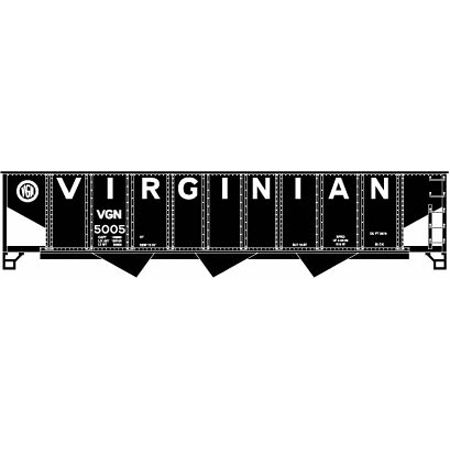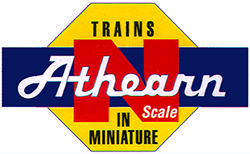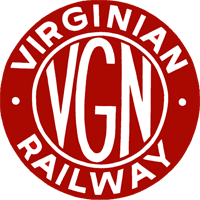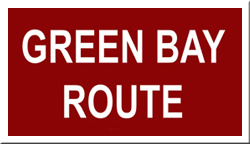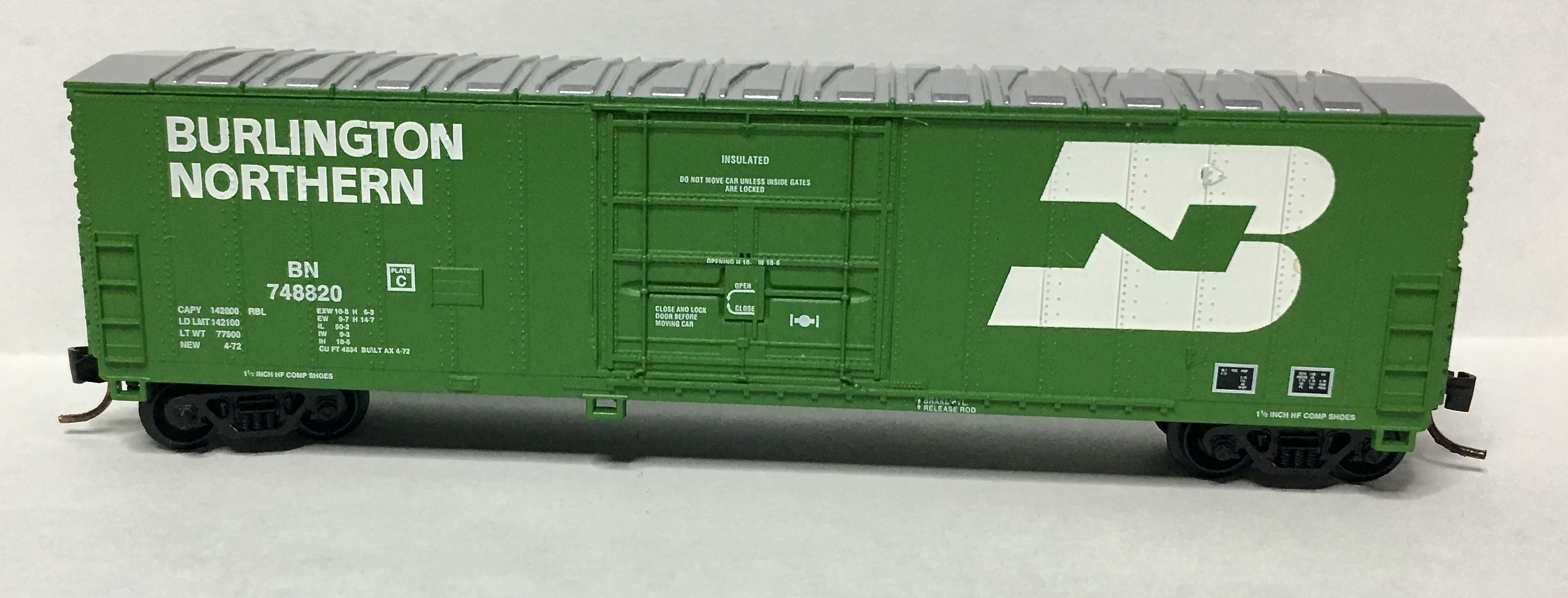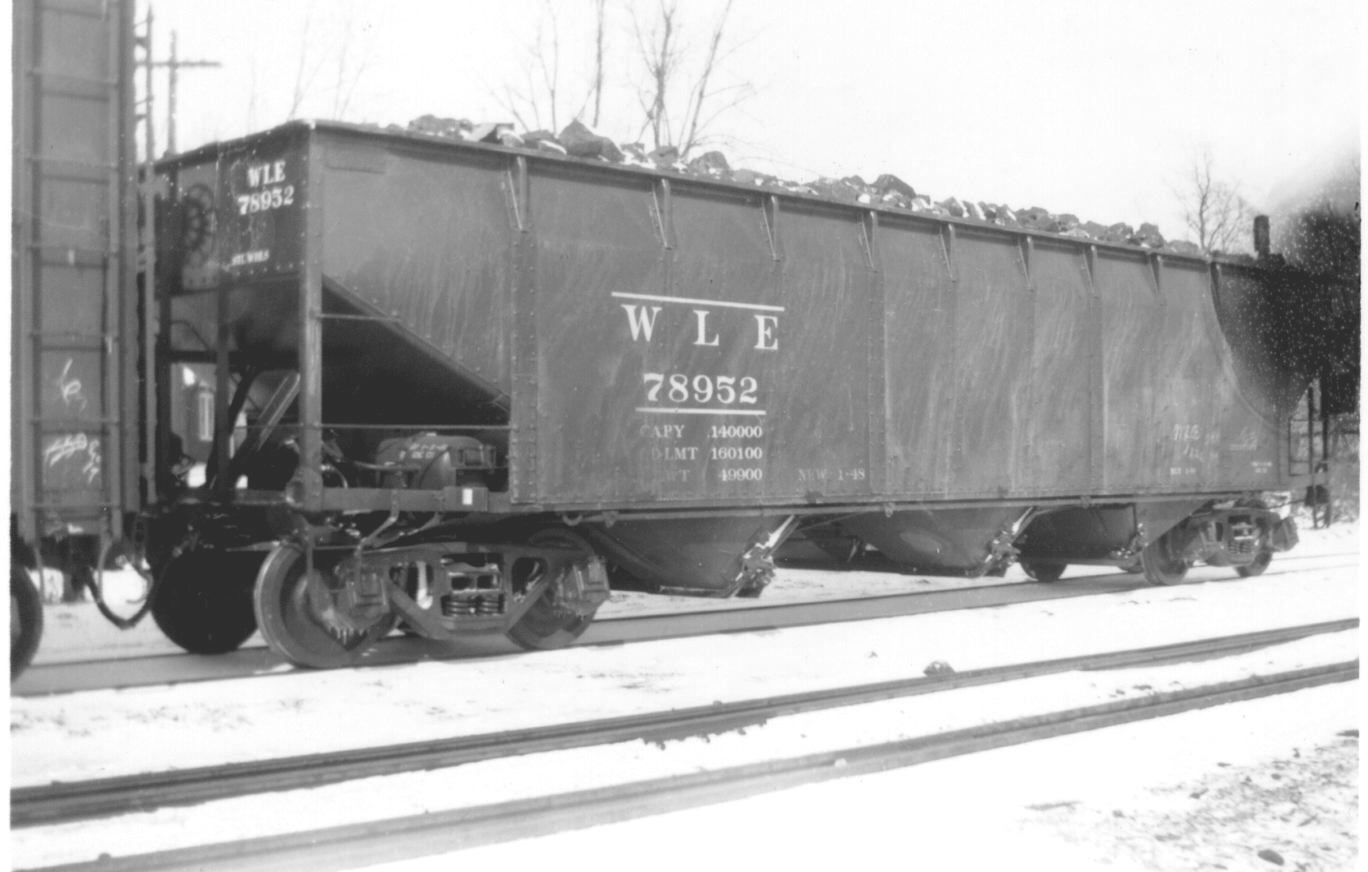Specific Item Information: N RTR 40 foot 3-Bay Rib Hopper w/Load, VGN #1 (5)
Prototype History: The 1960s brought about a growth in car size (and capacity). Railroads that transported coal moved away from the older 2-bay 55-ton USRA standard to newer 90- and 100-ton three bay hoppers. These cars were effective and long-lived. Many railroads swapped out the trucks on these cars to increase the capacity to 100 tons. Many companies produced these, including Pullman, Bethlehem, Evans, Greenville, Trinity and Ortner. The offset side variant of these hoppers carried a little more capacity than their rib-sided cousins.
Road Name History: The Virginian Railway (VGN) was conceived early in the 20th century by two men. One was a brilliant civil engineer, coal mining manager, and entrepreneur, William Nelson Page. His partner was millionaire industrialist, Henry Huttleston Rogers. Together, they built a well-engineered railroad that was virtually a "conveyor belt on rails" to transport high quality "smokeless" bituminous coal from southern West Virginia to port on Hampton Roads, near Norfolk, Virginia.
The Virginian Railway Company was formed in Virginia on March 8, 1907 to combine the Deepwater Railway in West Virginia and the Tidewater Railway in Virginia into a single interstate railroad, only a few months after Victoria was incorporated. On April 15, 1907, William Nelson Page became the first president of the new Virginian Railway.
Throughout that profitable 50-year history, the VGN continued to follow the Page-Rogers policy of "paying up front for the best." It became particularly well known for treating its employees and vendors well, another investment that paid rich dividends. The VGN sought (and achieved) best efficiencies in the mountains, rolling piedmont and flat tidewater terrain. The profitable VGN experimented with the finest and largest steam, electric, and diesel locomotives. It was well known for operating the largest and best equipment, and could afford to. It became nicknamed "the richest little railroad in the world."
Norfolk & Western Railway and Virginian Railway merged in 1959.
The Virginian Railway Company was formed in Virginia on March 8, 1907 to combine the Deepwater Railway in West Virginia and the Tidewater Railway in Virginia into a single interstate railroad, only a few months after Victoria was incorporated. On April 15, 1907, William Nelson Page became the first president of the new Virginian Railway.
Throughout that profitable 50-year history, the VGN continued to follow the Page-Rogers policy of "paying up front for the best." It became particularly well known for treating its employees and vendors well, another investment that paid rich dividends. The VGN sought (and achieved) best efficiencies in the mountains, rolling piedmont and flat tidewater terrain. The profitable VGN experimented with the finest and largest steam, electric, and diesel locomotives. It was well known for operating the largest and best equipment, and could afford to. It became nicknamed "the richest little railroad in the world."
Norfolk & Western Railway and Virginian Railway merged in 1959.
Brand/Importer Information: Athearn's history began in 1938, when its founder-to-be, Irvin Athearn, started an elaborate O scale layout in his mother's house. After placing an ad selling the layout, and receiving much response to it, Irv decided that selling model railroads would be a good living. He sold train products out of his mother's house through most of the 1940s. After becoming a full-time retailer in 1946, Irv opened a separate facility in Hawthorne, California in 1948, and that same year he branched into HO scale models for the first time.
Athearn acquired the Globe Models product line and improved upon it, introducing a comprehensive array of locomotive, passenger and freight car models. Improvements included all-wheel drive and electrical contact. One innovation was the "Hi-Fi" drive mechanism, employing small rubber bands to transfer motion from the motor spindle to the axles. Another was the double-ended ring magnet motor, which permitted easy connection to all-wheel-drive assemblies. Athearn was also able to incorporate flywheels into double-ended drives.
The company produced a model of the Boston & Maine P4 class Pacific steam locomotive which incorporated a cast zinc alloy base and thermoplastic resin superstructure. It had a worm drive and all power pickup was through the bipolar trucks that carried the tender. This item was discontinued after the Wilson motor was no longer available, and was not redesigned for a more technologically advanced motor.
Athearn's car fleet included shorter-than-scale interpretations of passenger cars of Southern Pacific and Atchison, Topeka & Santa Fe Railroad prototypes. The company also offered a variety of scale-length freight cars with sprung and equalized trucks. The cars could be obtained in simple kit form, or ready-to-run in windowed display boxes. The comprehensive scope of the product line contributed to the popularity of HO as a model railroad scale, due to the ready availability of items and their low cost.
Irv Athearn died in 1991. New owners took control in 1994, but continued to follow Athearn's commitment to high-quality products at reasonable prices. Athearn was bought in 2004 by Horizon Hobby. Athearn was then moved from its facility in Compton to a new facility in Carson, California. In mid-2009, all remaining US production was moved to China and warehousing moved to parent Horizon Hobby. Sales and product development was relocated to a smaller facility in Long Beach, California.
Read more on Wikipedia and Athearn website.
Athearn acquired the Globe Models product line and improved upon it, introducing a comprehensive array of locomotive, passenger and freight car models. Improvements included all-wheel drive and electrical contact. One innovation was the "Hi-Fi" drive mechanism, employing small rubber bands to transfer motion from the motor spindle to the axles. Another was the double-ended ring magnet motor, which permitted easy connection to all-wheel-drive assemblies. Athearn was also able to incorporate flywheels into double-ended drives.
The company produced a model of the Boston & Maine P4 class Pacific steam locomotive which incorporated a cast zinc alloy base and thermoplastic resin superstructure. It had a worm drive and all power pickup was through the bipolar trucks that carried the tender. This item was discontinued after the Wilson motor was no longer available, and was not redesigned for a more technologically advanced motor.
Athearn's car fleet included shorter-than-scale interpretations of passenger cars of Southern Pacific and Atchison, Topeka & Santa Fe Railroad prototypes. The company also offered a variety of scale-length freight cars with sprung and equalized trucks. The cars could be obtained in simple kit form, or ready-to-run in windowed display boxes. The comprehensive scope of the product line contributed to the popularity of HO as a model railroad scale, due to the ready availability of items and their low cost.
Irv Athearn died in 1991. New owners took control in 1994, but continued to follow Athearn's commitment to high-quality products at reasonable prices. Athearn was bought in 2004 by Horizon Hobby. Athearn was then moved from its facility in Compton to a new facility in Carson, California. In mid-2009, all remaining US production was moved to China and warehousing moved to parent Horizon Hobby. Sales and product development was relocated to a smaller facility in Long Beach, California.
Read more on Wikipedia and Athearn website.
Item created by: George on 2016-09-18 09:37:43. Last edited by Lethe on 2020-06-01 00:00:00
If you see errors or missing data in this entry, please feel free to log in and edit it. Anyone with a Gmail account can log in instantly.
If you see errors or missing data in this entry, please feel free to log in and edit it. Anyone with a Gmail account can log in instantly.


